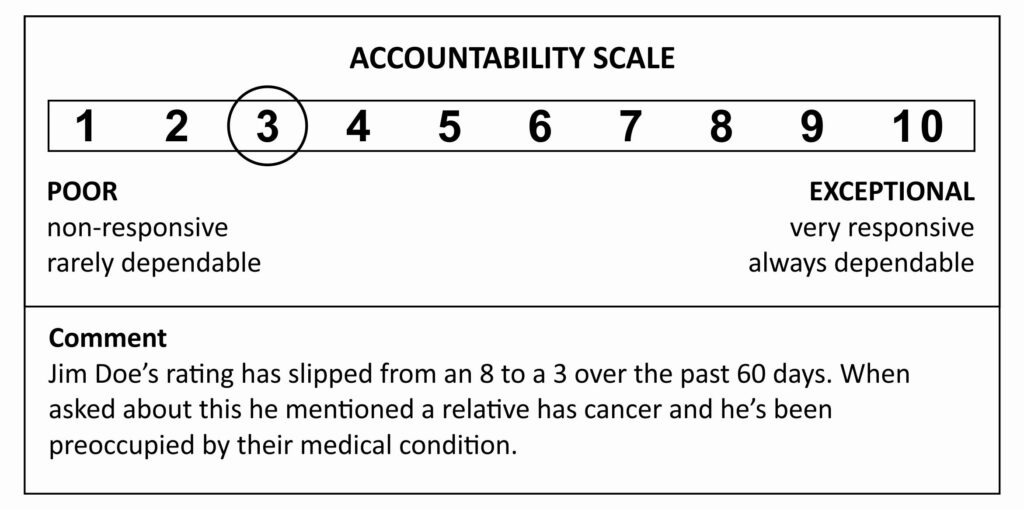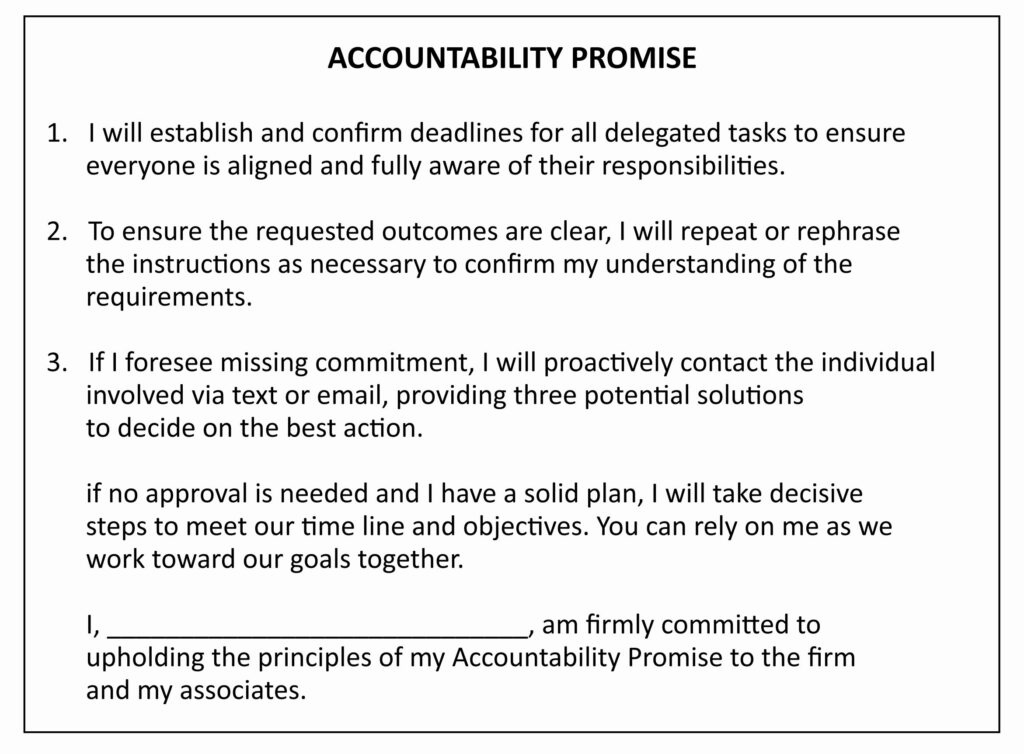I am excited to share that I recently published a book titled “The Shop Managers Handbook,” specifically for small and medium-sized sign business owners and their managers. This comprehensive resource provides in-depth strategies for transforming your shop into a lean production machine. In the chapters, I explore various critical aspects of production management, employee development and team building.
I recognize the essential roles of delegation, transparency, effective communication and accountability in enhancing productivity. However, fostering employee development and ensuring customer satisfaction deserve more emphasis. While I touched on these important concepts in the book, I feel I did not delve deeply enough into how they can positively or negatively influence an organization’s framework.
Delegation, for instance, is not merely about assigning tasks; it’s about empowering employees to take ownership of their responsibilities and creating a sense of accountability. This, in turn, increases their engagement and motivation.
Transparency is another critical element that underpins a successful workplace culture. By promoting an open environment where information flows freely, leaders can cultivate trust among team members. This openness encourages team discussions and helps to align goals, minimizing misunderstandings and fostering collaboration.
Effective communication is vital for ensuring that everyone is aligned and informed. It goes beyond simply exchanging information; it involves actively engaging with employees to gain insights and feedback, which can lead to better decision-making. Moreover, establishing clear channels of communication can streamline processes and enhance teamwork.
Finally, accountability ties these elements together. When employees know they are responsible for their contributions and understand the expectations set before them, it creates a sense of ownership over their work. This culture of accountability not only drives individual performance but also strengthens the overall team dynamic and leads to improved customer satisfaction.
In this article, I want to introduce “The Accountability Promise.” This concept serves as a tool for business leaders to establish a culture where accountability is more than just a buzzword; it becomes a fundamental principle that drives employee engagement and overall business success. Companies can significantly improve their performance and cultivate a thriving work environment by focusing on these key areas.
The Accountability Promise was inspired by delegation agreements typically used in corporate settings. These agreements clearly define each party’s responsibilities between the manager and their direct report. The purpose is to encourage a mutual understanding of each party’s obligations and expectations, which helps reduce the likelihood of misunderstandings or disputes.
Delegation agreements are essential for defining responsibilities and promoting accountability among parties. They specify each party’s tasks, which enhances efficiency by streamlining processes and improving communication. By documenting the terms and conditions, these agreements build trust and ensure that all parties are fully committed.
The approach I described is typically too complex for small companies because it involves a heavy administrative burden. Smaller organizations need a solution that achieves similar results with greater simplicity and speed. This is where The Accountability Promise comes in. The Accountability Promise serves as a moral standard or code of ethics rather than a strict contract.
It fosters positive relationships between associates and managers by promoting behavioral standards, ensuring everyone fulfills their roles and responsibilities—a fundamental aspect of world-class companies.
When we examine the fundamental elements more closely, we can identify two basic components that are essential for understanding responsibility and commitment:
1) Accountability: This concept embodies the quality or state of being accountable, which implies a strong obligation and willingness to take responsibility for one’s actions and decisions. It emphasizes the importance of acknowledging those outcomes (positive or negative) and being prepared to face the consequences. Accountability fosters a sense of trust and integrity.
2) Promise: A promise is a powerful declaration made by an individual or a group, indicating an intention to perform a specific action or to abstain from doing something. This commitment serves as a personal pledge and creates a foundation for others to have expectations regarding success, improvement or excellence. A promise carries weight, as it embodies the assurance that one will adhere to one’s word, contributing to a sense of reliability and integrity in relationships and endeavors.
Put these elements together and you have The Accountability Promise—a commitment to follow through on your promises and be reliable. It’s that simple! Let me explain how it works.
First, set the ground rules between you and your associates by the following standards:
– Own your commitment: Take responsibility for your words and show up for yourself and others.
– Reiterate your commitment: Remind others that you take your promises seriously.
– Stop “trying” and do it: The word “try” is non-committal; instead, commit to action.
– Make promises wisely: Anticipate potential obstacles and plan for them.
– Don’t settle for justifications: This applies even if your reasons are valid.
Next, make accountability a part of your employee development program. Enhancing accountability effectiveness improves the quality of your employee development program. Creating an “Accountability Scale” transforms intangible behaviors, typically hard to quantify, into measurable key performance indicators (KPIs).
 Engage in regular and ongoing employee development meetings (EDMs). You will track and discuss accountability throughout the year along with other relevant initiatives such as systems innovation, customer service programs or functional cross-training.
Engage in regular and ongoing employee development meetings (EDMs). You will track and discuss accountability throughout the year along with other relevant initiatives such as systems innovation, customer service programs or functional cross-training.
If the outcomes do not meet your expectations or goals (left side of the scale on pg. 11), this may indicate underlying issues that need to be addressed. These issues could arise from systemic factors within the organization. By identifying the root causes, you can implement targeted strategies to improve the program and enhance your workforce’s overall performance.
Accountability is crucial because it allows you to enhance your influence and build a reputation for being trustworthy among all stakeholders and customers. It enables you to respond effectively to challenges and opportunities and adapt to changing circumstances.
It’s Good For All Stakeholders!
If your goal is to make a meaningful impact in your workplace or community, increase your earning potential, accelerate your chances for promotion and cultivate the ability to inspire and rally others to support your initiatives, establishing a reputation for reliable accountability is essential.
Finally, create individual “Promise Statement” cards. Each person should commit to fulfilling their responsibilities by signing their card, just as all team members will do. This pledge, illustrated in the image above, ensures that everyone works together toward a common goal, fostering accountability and teamwork within the group.
 The good news about accountability is it’s a straightforward concept that anyone can practice; it does not require specialized training or advanced skills. When you hold yourself accountable, you build trust with col-leagues, friends and family, which in turn can lead to stronger relationships and increased collaboration.
The good news about accountability is it’s a straightforward concept that anyone can practice; it does not require specialized training or advanced skills. When you hold yourself accountable, you build trust with col-leagues, friends and family, which in turn can lead to stronger relationships and increased collaboration.
Moreover, accountability encourages a culture of transparency and open communication, where individuals feel empowered to take initiative and contribute positively to their environments. By consistently demonstrating accountability, you can significantly improve your effectiveness in achieving your goals and inspire others to do the same.
Author John Hackley has over 40 years of experience as a business owner, consultant, and speaker in the Signage and Visual Communications Industry. For more information on strategies to help your sign business grow and profit, visit www.leanshopmanager.com.











